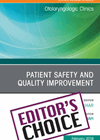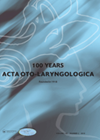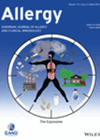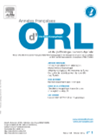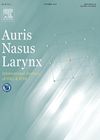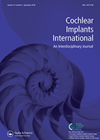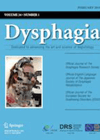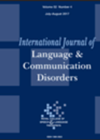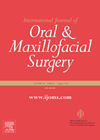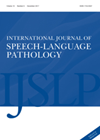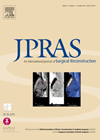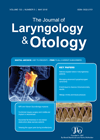
Journal Reviews archive for May 2019
Button batteries – how can we reduce harm to children?
This article explores the history of button batteries and how clinicians and industries alike could reduce the harm to children following ingestion. Following ingestion, if lodged, button batteries cause an alkaline reaction leading to necrosis of mucosa. Significant oesophageal injury...
Is there hope of hearing for postmeningitic patients deemed unsuitable for a cochlear implant?
Rehabilitation of patients with profound hearing loss deemed unsuitable for cochlear implants is challenging. An auditory brainstem implant (ABI) is a viable option for these patients. This paper evaluates auditory and speech perception outcome measures following ABI in 10 postmeningitic...
CRSwNP and smell – is it just the obstruction?
Anosmia and hyposmia are symptoms of CRS both with and without nasal polyps and can significantly affect quality of life. The nature of anosmia/hyposmia is thought to be both sensory-neural and conductive. These authors studied a mouse model in which...
Widen the ostium or keep it: that is the question
The original concept of wide endoscopic sphenoethmoidectomy for sinonasal polyposis has been a well-established principle since 1995. However, with the evolution of the understanding of sinonasal physiology, this might change. The authors present arguments based on the evolutionary and developmental...
Valsalva manoeuvre treatment of otitis media with effusion in adults
Otitis media with effusion (OME) is common in children but has a low prevalence in adults. There is some evidence to advocate middle ear inflation as a successful treatment for children with OME. This form of treatment is also recommended...
The paediatric dilemma of one ear in and one ear out of NICE criteria
The auditory implant team in Manchester have implanted a cohort of children where audiological thresholds meet the NICE guidance for cochlear implantation (CI) in one ear only, and the other falls into moderate, severe or sloping loss. These children are...
From a dysphagia clinical trial to a multidisciplinary head and neck clinical pathway – the road to implementation
This paper describes the barriers and facilitators to establishing a structured and coordinated multidisciplinary care pathway for patients with head and neck cancer at a medical centre in the USA. The initiative was set in motion by the roll out...
Instrument assessment preferable over standard beside swallow to determine prevalence of aspiration
Aspiration does not trigger the protective cough response in some patients. The patient’s response may vary according to fluid viscosities and volume. The authors of this prospective study investigated the prevalence of aspiration and response to aspiration of different viscosities...
Soft tissue changes following maxillary osteotomy, comparison of three computer programmes
This small group of seven patients had a Le Fort I advancement maxillary osteotomy with vertical repositioning and alar base cinch sutures. They were assessed with cone beam CT’s three months preoperatively and one year postoperatively. A clinical comparison between...
Does talking better make you feel better?
Interaction-focused therapy for people with language impairment (aphasia) following a stroke or brain injury is routinely used by speech and language therapists in clinical practice. These types of interventions are based on research into the organisation of interactions and interactional...
To use or not to use: absorbable sutures for facial wounds
This systematic literature review looked at studies comparing facial skin closure with absorbable versus non-absorbable sutures. Studies not published in English or looking at areas other than the head and neck, and studies focused on suture technique rather than material...
Visual distraction helps patients tolerate flexible laryngoscopy
With the arrival of flexible fibreoptic laryngoscope some 35 years ago, the examination of the laryngopharynx has become remarkably easier and saves immense time and costs since the days of mirror examination when this examination was not truly satisfactory in...

